Wind River: The Reckoning (2025)
Wind River: The Reckoning (2025) is a haunting, visceral, and emotionally charged continuation of Taylor Sheridan’s Wind River universe — a neo-Western thriller that expands on the original film’s themes of justice, trauma, and survival in the unforgiving wilderness of the American frontier. Directed by Kari Skogland (
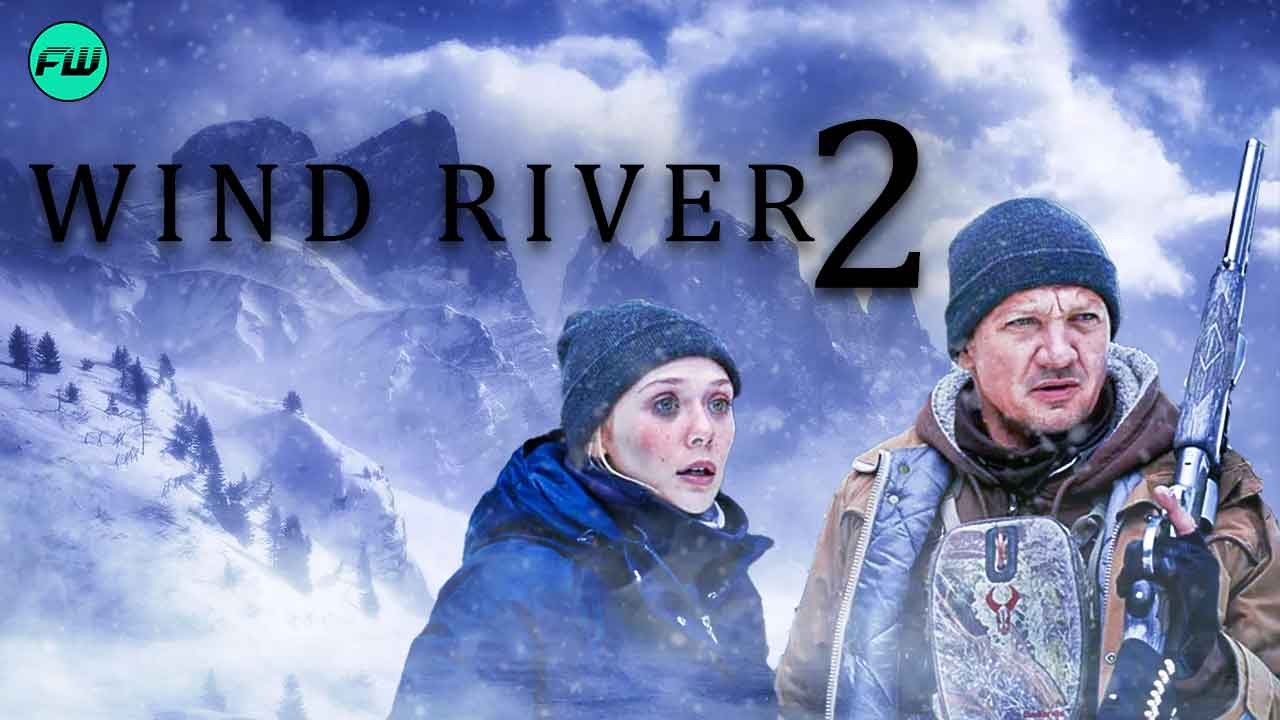
The story takes place several years after the events of the first film. Cory Lambert (Jeremy Renner), still working as a wildlife tracker, lives a quiet, solitary life burdened by memory — of his daughter, of the case that changed him, and of a land that seems to bleed pain into the snow. When a young Native woman is found murdered under eerily similar circumstances, Cory’s fragile peace shatters. FBI agent Jane Banner (Elizabeth Olsen), now a seasoned investigator, returns to the reservation to assist in the case, reigniting the uneasy partnership that once brought justice — and grief — to Wind River. Together, they face not just another killer, but a conspiracy that runs deeper and darker than either imagined.
This time, the violence isn’t the work of outsiders — it comes from within. The investigation leads Cory and Jane to a new tribal police chief, Emma Washakie (played by Lily Gladstone), who must navigate political tension between her people and the federal agencies that continually fail them. As the trio uncovers evidence linking the murder to illegal oil drilling operations on Native land, they find themselves up against powerful corporate interests and corrupt law enforcement officials desperate to bury the truth. The deeper they dig, the more they uncover about the systemic exploitation of Indigenous communities — and the ghosts of Wind River that never truly rest.

True to Sheridan’s style, The Reckoning balances raw tension with aching humanity. Cory’s quiet stoicism gives way to flashes of anguish, his grief manifesting as both strength and weakness. Renner delivers one of his most soulful performances — a man still trying to atone for his past by protecting others, even as the wilderness slowly devours his spirit. Olsen’s Jane, hardened by years in the Bureau, carries new weight and empathy; her understanding of the reservation’s wounds has deepened, making her both ally and advocate. Gladstone, in a breakout performance, embodies grace and fire — a woman fighting not only for justice, but for the soul of her people.
Visually, the film is breathtaking and brutal. Cinematographer Ben Richardson (Hell or High Water, Yellowstone) turns the Wyoming landscape into a silent character — endless white plains broken by blood, wind, and the low growl of a storm rolling in. The snow, once a symbol of purity, becomes a shroud of concealment. The stillness of nature contrasts with the violence of men, each frame painted in muted tones of blue, gray, and rust. Nick Cave and Warren Ellis return to score the film, their mournful, minimalistic music echoing through empty valleys like a prayer for the dead.
The tension builds to an explosive climax in which Cory, Jane, and Emma uncover a hidden drilling site where Indigenous workers are being exploited — and silenced. The final confrontation, staged in a howling blizzard, is as much emotional as it is physical. Justice is served, but not without cost: lives are lost, truths are buried, and the land claims another debt in blood. In the aftermath, Cory returns to the frozen ridge where his daughter died, kneels in silence, and whispers, “We reckon with what’s left.”
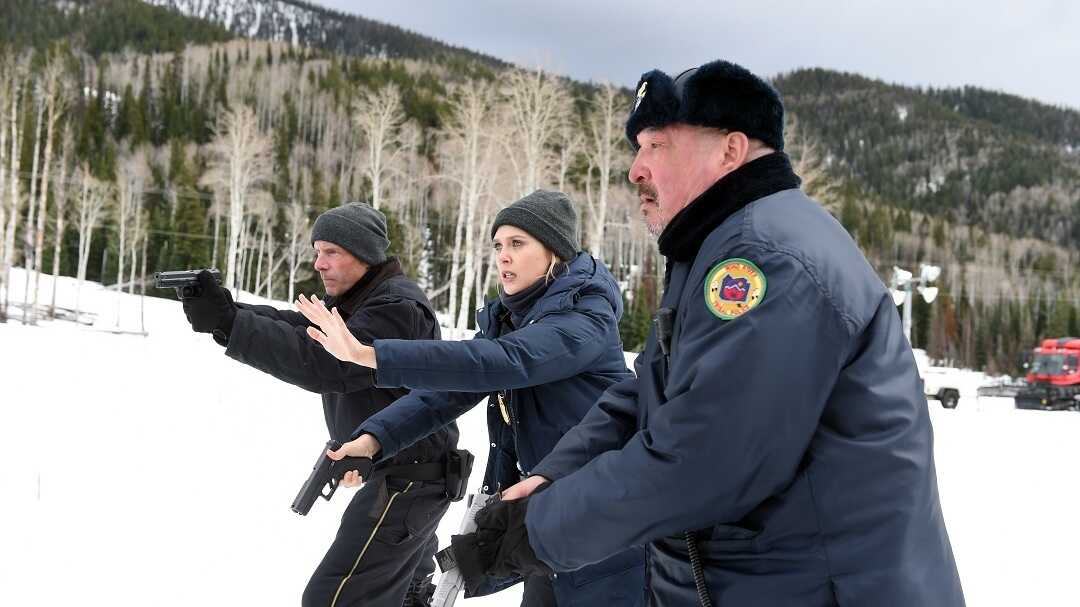
The film closes with a dedication — “For the Missing and Murdered Indigenous Women” — reminding audiences that Wind River: The Reckoning is not only a story, but a statement. Sheridan’s world remains one of moral clarity and unflinching honesty, where violence has consequence and silence has weight.
Longmire – Season 7 (2025)

Longmire – Season 7 (2025) marks the long-awaited return of the beloved neo-Western crime drama, resurrecting the stoic sheriff and his world of rugged justice for one final, emotionally charged chapter. Developed once again by John Coveny and Hunt Baldwin, with Robert Taylor reprising his iconic role as Walt Longmire, the new season picks up several years after the events of Season 6 — exploring redemption, legacy, and the question of whether a man can truly leave behind the life that defined him.
The story opens in Absaroka County, Wyoming, where a decade of uneasy peace has settled over the wide plains. Walt Longmire has retired from law enforcement, living quietly on his ranch with Vic Moretti (Katee Sackhoff), now his longtime partner in both life and love. Their world is calm but not content — Vic wrestles with the ghosts of her past cases, while Walt finds himself restless, haunted by dreams of unresolved wrongs and the steady encroachment of corporate power on the Wyoming frontier. When a mysterious murder occurs on Cheyenne land — a tribal activist found dead under suspicious circumstances — Walt is drawn back into a world he thought he’d left behind.
The crime quickly reveals deeper fractures beneath the surface. Henry Standing Bear (Lou Diamond Phillips), still running The Red Pony bar and serving as a cultural bridge between communities, warns Walt that this case isn’t just another killing — it’s the spark in a powder keg. A private energy company, backed by out-of-state interests, has been drilling near sacred tribal ground, stirring tension between the Cheyenne Nation and local ranchers. As Walt investigates, he uncovers a web of corruption, cover-ups, and disappearances that lead back to powerful men who view the land — and its people — as expendable.
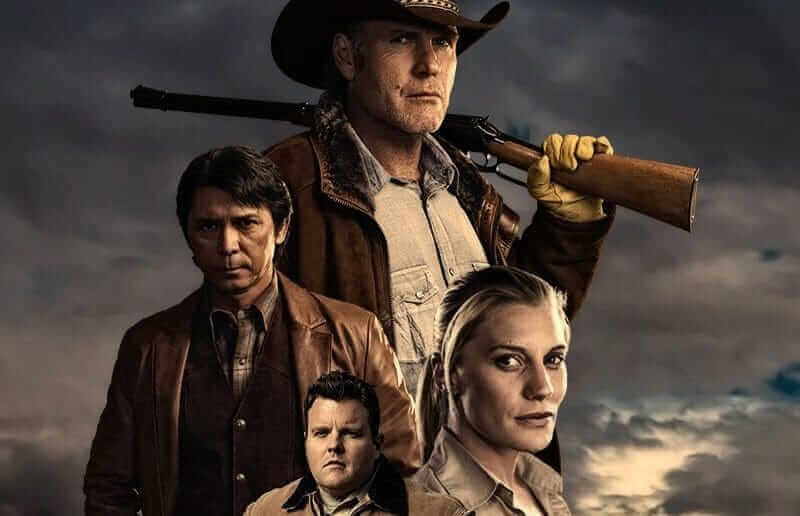
What follows is classic Longmire — quiet intensity punctuated by bursts of violence and moral reckoning. Walt, now slower but wiser, must confront the limits of his own code in a world that no longer believes in simple justice. Vic, now a lieutenant in the sheriff’s department, struggles to balance her loyalty to Walt with her duty to the law. Their relationship deepens into something raw and tender — two broken souls bound by loyalty and loss. Henry’s role grows profoundly spiritual this season; his story becomes one of healing, identity, and the painful cost of wisdom.
The season also brings back familiar faces: Ferg (Adam Bartley), now the sheriff of Absaroka County, finds himself torn between political pressure and the example of his mentor. Cady Longmire (Cassidy Freeman), now a prominent attorney and advocate for Native rights, fights to protect the land her father once defended with a badge. Her growing alliance with the tribal council — and her moral clash with the energy company’s legal team — puts her directly in the crosshairs of those who would destroy everything the Longmires have stood for.
Visually, the series remains as breathtaking as ever — sweeping shots of Wyoming’s mountains and valleys bathed in golden light, contrasting the serenity of nature with the brutality of human greed. The cinematography emphasizes silence and solitude: long takes of Walt riding alone across the plains, or standing beneath the wide-open sky, his weathered face framed against gathering storms. The score by David Buckley returns, layering mournful strings and subtle percussion to create a soundscape that feels both timeless and tragic.
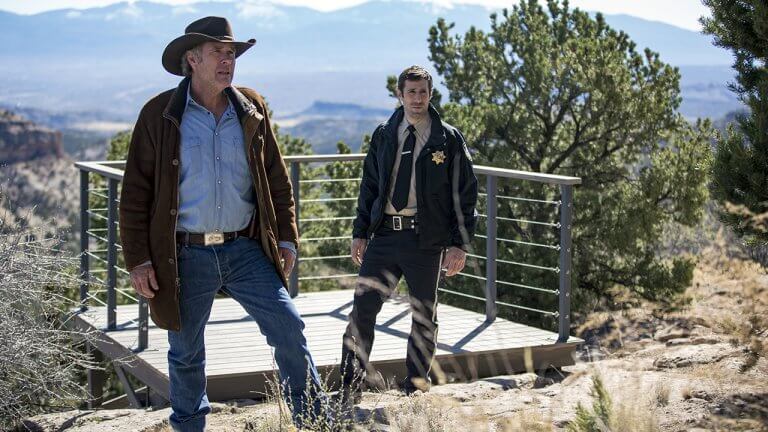
In the gripping finale, Walt uncovers proof that the company’s CEO — a former state senator — orchestrated multiple murders to cover up environmental crimes. The final showdown takes place on the same ridge where Walt first found peace years ago, now transformed into a battleground for the soul of Wyoming. When the dust settles, justice is served, but at a cost: Henry is gravely wounded, Vic resigns from the department, and Walt, once again, finds himself alone on the land he swore to protect. In the closing moments, Walt writes in his father’s old journal, his voice steady and calm:
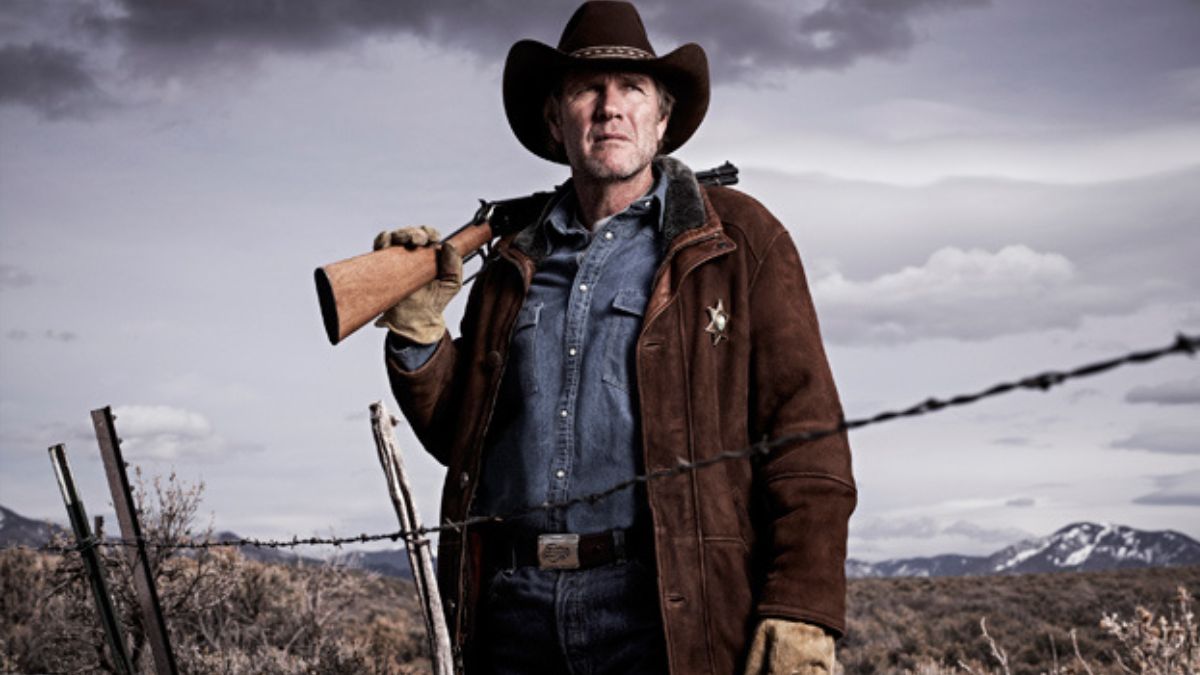
Longmire – Season 7 (2025) ends not with action, but with grace — Walt standing by the fence line at sunrise, watching wild horses run across the prairie. The camera pulls back slowly, the sky burning gold, as the iconic theme swells one last time. A story about justice, family, and the endurance of the human spirit, the final season closes the book on one of television’s most quietly profound heroes — a man who learned that true strength lies not in the gun you carry, but in the peace you finally make with yourself.





